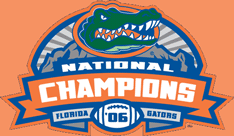I've been thrown for a loop.
It was only a few short weeks ago that I decided to change my browser homepage from CNN.com to NYTimes.com, a move that was unquestionably overdue for someone like me who is fed up with entertainment and sensationalist headlines from what I no longer consider a credible news source. It makes little difference really, considering that the news I get comes from all over the Web through my RSS reader. I like the Times for the same reasons everyone else does (multimedia reporting, feature stories, etc.) despite its left-leaning rap sheet, but some of their recent news judgment decisions have left me, a journalism student whose brain is still being molded, confused.
By now everyone's either read or heard about the fuzzy article that was published last week about presidential hopeful John McCain's "troublesome" relationship with female lobbyist Vicki Iseman. The article, which made these claims using sources that would only dish the dirt on the condition on anonymity, prompted McCain to hold a press conference to handle questions and deny the allegations. So what? People use confidential sources all the time right? But I'm lost...
All UF j-students are required to take Problems and Ethics in Journalism. I did. I got an A, too, and after reading this article I pulled out some of my notes. For most journalism dilemmas we were given a checklist to determine if the decisions that are made can be ethically justified. Usually they are if at least a few of the conditions in the checklist are satisfied.
Here is the checklist we were given for using confidential sources:
- All else being equal, identify all news sources fully.
- The story should be of overriding public importance.
- Always try to obtain the same information from sources who are willing to be quoted first.
- Grand confidentiality only to someone who is relatively powerless or likely to lose the capacity to remain a solid information source.
- Don't let anonymous sources use the cloak of anonymity to attack other individuals or organizations.
- Make sure you are willing to tell readers how you got your information and why you're protecting the source's confidentiality.
Convinced the relationship had become romantic, some of his top advisers intervened to protect the candidate from himself — instructing staff members to block the woman’s access, privately warning her away and repeatedly confronting him, several people involved in the campaign said on the condition of anonymity.First, it's tough to think that a paper as big as the Times sucked all their sources dry before having to publish this story based on anonymous sources. If there were "several people involved," couldn't they at least be more specific and say what positions they hold in the campaign? With this attribution, they might as well have gotten the information from McCain sign-waver Joe Schmoe on the corner at the voting precinct. Second, could a story about a questionable romantic relationship of a potential presidential candidate years ago be considered an "attack on an individual?" Of overriding public importance? To me, it's not so overriding that it needed to be rushed to publication before more attempts at obtaining open information could be made. In this case, I'd also say that the Times did not openly explain to their readers the "how" and "why" behind the information. I think they failed the checklist.
This only leads me to my next troubling thought: Has most of the American public been conditioned NOT to question their news sources? The answer to this must be a resounding "yes" if channels like FOX News can sustain so many viewers, and this is disheartening.
Whether or not the article is true, and whether or not the voters would actually care if it is or not, was it a responsible decision for a news icon like the Times to publish an ultimately unsubstantiated story like this one? Based on my novice knowledge, I'd have to say no.




1 comment:
RIGHT ON.
Post a Comment